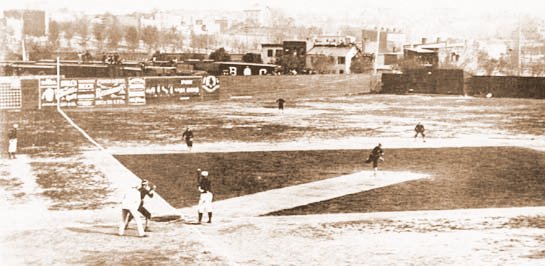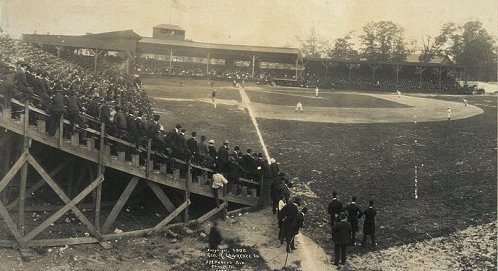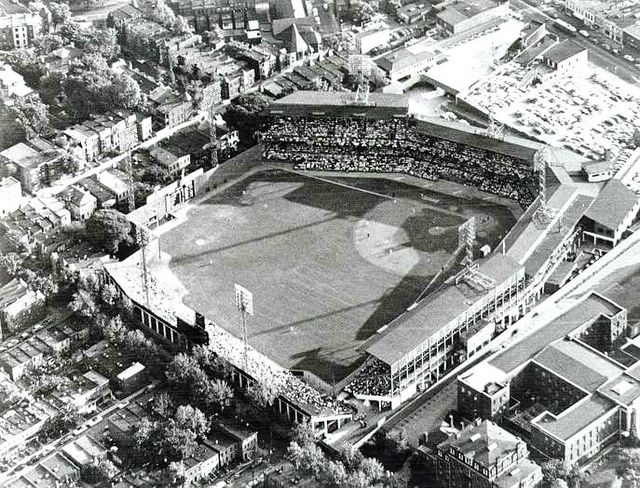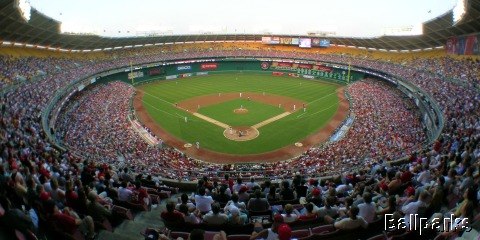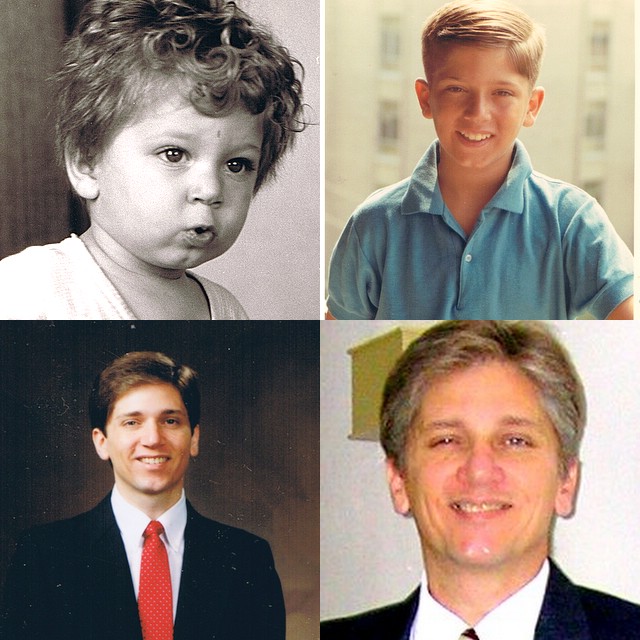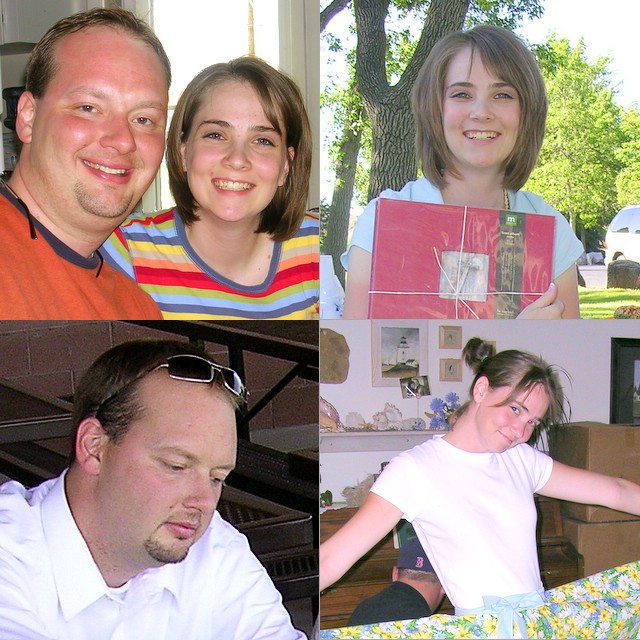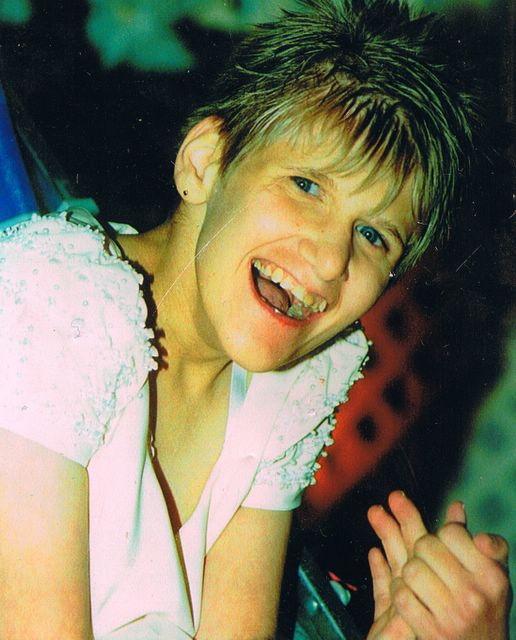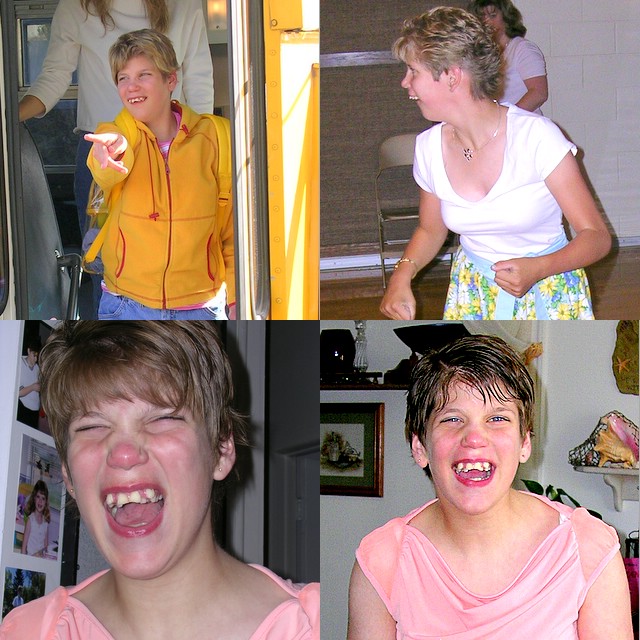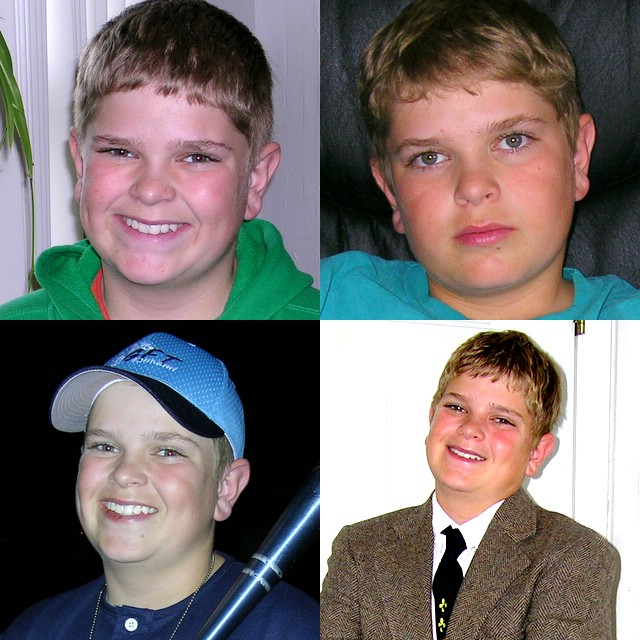NATS CONTINUE TO ROLL WITH SWEEP OF BREWERS
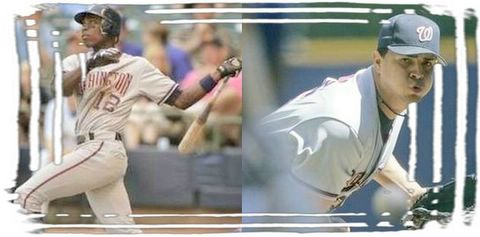 [June 4th] -- Although I am happy as heck that the Nationals swept the Brewers this weekend, and that they're playing as well as anybody right now in the major leagues, I still feel very bad for the Milwaukee fans, because It was the Nationals, just a few short weeks ago, who were playing like the Brewers are now; bad pitching, bad fielding and bad offense.
[June 4th] -- Although I am happy as heck that the Nationals swept the Brewers this weekend, and that they're playing as well as anybody right now in the major leagues, I still feel very bad for the Milwaukee fans, because It was the Nationals, just a few short weeks ago, who were playing like the Brewers are now; bad pitching, bad fielding and bad offense.
Frank Robinson must have been feeling pretty good about his team Sunday morning, because he gave Nick Johnson, Ryan Zimmerman and Marlon Byrd the day off. Damian Jackson, Robert Fick and Brendan Harris went a combined 1-11, and yet the Nationals pummeled the Brewers 8-4.
Well, Alfonso Soriano pummeled the Brewers 8-4. He got three more hits on Sunday, including his 20th and 21st of the year, the last a grand slam.
Can someone explain just how and why Soriano is playing the way he is? Soriano is on pace to hit 59 home runs and drive in 130 runs. His normally anemic on base percentage (career .322) is now a solid .355 over the team's first 57 games. What's different? Last year, playing in the friendly confines of the Ball Park at Arlington (or whatever they're calling it these days), he hit .315-25-73 (.386 obp) at home and only .224-11-31 (.265 obp) on the road. So he gets traded from a hitters park to the most pitcher friendly park in the major leagues, with power alleys as deep as some park's center field distance, and his home numbers actually improve. So far this year, Soriano is batting .319-11-18 (.386 obp) at RFK and .294-10-25 (.333 obp) on the road. The day after the trade, I predicted that Soriano would bat .285-28-116, but I also quoted ESPN's Steve Phillips, who said, "Most of Soriano's home runs are of the "oh my gosh" variety anyway, so most of his home runs will be banging off of the back wall of RFK and not just getting over the fence." Now that I think about it, pretty much all of his homers have bounced off the back wall, making those 395 foot alley ways a moot point.
From the Nationals perspective, his having a "career year" couldn't have come at a better time. Had he been on pace to hit .280-30-100, the Nationals would have probably been able to get one "can't miss"prospect and one "could miss" type of guy. If Soriano keeps this up, the Nats just might be able to demand a "probably won't miss" prospect as well. I know the conventional wisdom says that you get more in return the closer you get to the trade deadline, but Soriano can't possibly keep hitting like this, so it might make sense to get a deal done now.
Many of the message boards are beginning to doubt the wisdom of trading veterans for prospects now that the team is beginning to win. I couldn't disagree more. The Nationals, as constituted today, are just as likely to lose ten in a row as they are to win those same ten games. At there very best, they are somewhere around a .500 team, maybe five games under, maybe five over. There isn't enough talent in the minors to turn the team into a contender, so unless all we're striving for is mediocrity, the only answer is to trade those veterans for prospects.
One player that I don't want to see traded is Tony Armas Jr. He is having the kind of year that all of baseball predicted if he could just remain healthy. He's on pace to finish the year at 17-8, 3.34. He only signed with the Nationals last fall because only one other team, the Rockies, showed any interest at all. Hopefully, Stan Kasten will show his willingness to lock up the team's young stars to multi-year deals before Armas tests the free agency market once again.
NATS NOTES: The Nationals are tied for first for most wins in the National League since May 18th (11) .... the sweep of the Brewers is the 5th road sweep for the Nats since moving to Washington .... Billy Bray won his major league debut on Saturday, the first Expo/National to do that since Zach Day four seasons ago .... unlike last year, when they played poorly against lefties, the '06 Nats have won seven out of their last nine outings against southpaws .... The team has now won 23 games in June of '05 and '06, one of only three teams to win twenty or more during that span .... Alfonso Soriano has now homered in nine consecutive series, joing Vladimir Guerrero as the only players ever to do that for the franchise .... Ryan Zimmerman is on pace to break the team's rookie home run record of 20, held by Brad Wilkerson (though he didn't hit his 9th unil July 6th, more than a month after Zimmerman) .... the Nationals are the only club who have their last three first round selections playing in the big leagues.
Changing the subject, you've reiterated here again the premise that (barring a huge payroll splure to buy a FA contending team this season) the ONLY sensible choice is to do the opposite, and trade off all our best current players for prospects. I'd really appreciate it if you would make more clear why this is such a 100% all or nothing, either/or proposition for you. Why is it impossible to entertain the idea of a middle way, where we sustain the current team at more or less today's level, while spending an incremental increase on prospects? Seems to me that if they Lerners were willing to notch up salary just a little bit (say, 5-10%?) we could afford to do everything we need in the minors, without gutting the big club right now. Why is this wrong?
It's not that I think that all veterans need to be traded for prospects, I think that all of the Nationals' veterans need to be traded for prospects. Although the new owners would like the team to be able to battle for a playoff spot when the new stadium opens, any real help that might come from the minor leagues is more than two years away, which will bring those prospects to Washington after that window in 2008. More likely, the guys who could make a difference are 3-4 years away.
Bill Ladson wrote last week that the Nats aren't/can't resign Soriano, so we know that he's on his way out (which is a shame, because he really is an electric player), and that Jose Guillen WILL NOT be asked to return in 2007. Nick Johnson will be 34 in four years, and Schneider 32. Vidro will be (I think) 35. So will Livan. So by the time the young kids are ready to help,let's say four or five of them, the core of the team (Nick, Brian, Livan and Jose)will all be in their mid 30's and on the downside of their careers. The team would then probably begin to consider trading them or allowing them to leave via free agency to get the team younger.
Well, if they aren't going to be part of the group that takes the team to the playoffs, why not trade them now? Six guys, could likely bring in return 14-15 prospects, half of them ending up being starters by '09 or so. Those guys, plus young vets like Larry Broadway, Ryan Zimmerman, Brendan Harris, et.al., would make a young, hungry team able to challenge for the division championship.
Of course we wouldn't want to trade Livan, but what if we could trade him for Cliff Young, Brandon Phillips and Grady Sizemore? You'd do that, right? Well, Indian fans were very upset when their G.M traded Bartolo Colon to Montreal for three "unknown rookies." They turned out to be those three. By getting rid of most/all of their aging, pricey vets, the Indians went from mediocre to bad to very good in just a few short years.
What if the team can multiply that type of trade five or six times this summer? How good would the team be? And more importantly, would that team be better than the one that kept Nick, Brian, etc.?
I don't know, but I think that the younger, more talented team would be better. By just trading a few players, and adding a little payroll, the team would probably continue their middle-of-the-road success. It's not hard to be average, but to be great, you have to take a chance.
That's all I'm suggesting.
Thanks for asking.
Seriously, in 4 years Nick will be 30 (ok he'll turn 31 in mid-Sept of 2009) not 34.
Same with Brian he's 29 right now and won't turn 30 until after the season ends. If 2010 is the season we're looking at he'll "only" be 33.
I guess I'm more of an incrementalist by nature. Rather than gut the clubhouse, I'd still rather keep it down to 2-3 trades (Sori, Guillen, +1) and keep a credible team on the field.
Aside from the arguments I'ce made before, I think there's a danger lurking in an all-youngsters "rebuilding" clubhouse. If you send a clear message to the players "we don't really expect you to win this season...or maybe next" they will probably play accordingly: as though they don't expect to win either. This kind of attitude can really take hold in the organizational culture and work ethic of a group of people. Then when all these talented young prospects turn up at the big club full of "placeholder" semi-veterans, they may get used to this slack attitude also.
I think it's very hard to establish and maintain a culture and mindset of excellence in a team clubhouse whose management has openly traded all the excellence away. And I think these sorts of human intangibles can matter enormously.
Good luck with the geology exam. I know the feeling; I was up til 4:00 last night working on a grad school paper of my own.
<< Home










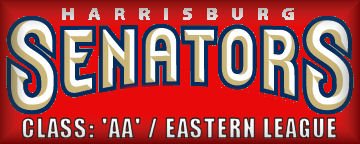
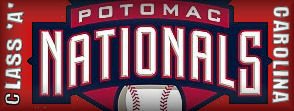

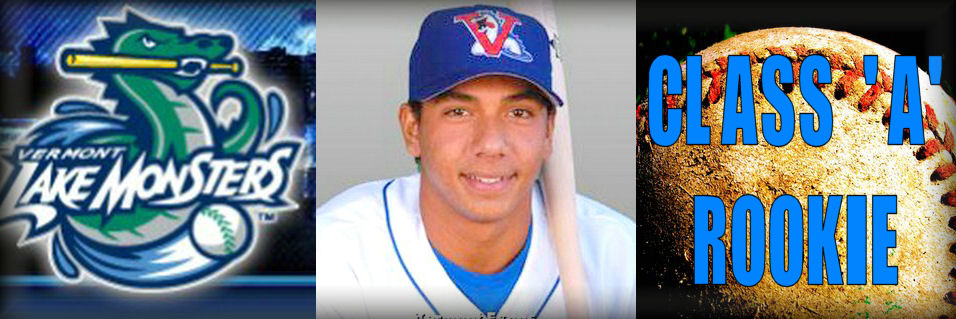











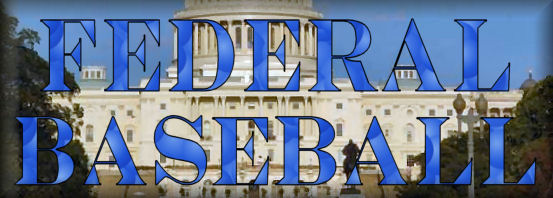



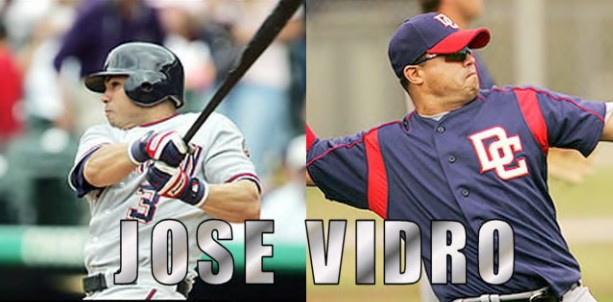




















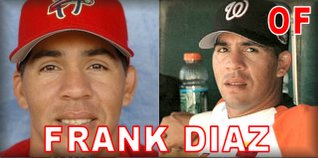

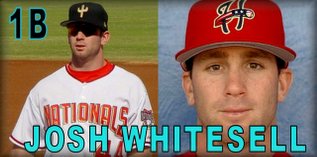
 3) 1926 (road) --- 4) 1936-'37, 1948-'51
3) 1926 (road) --- 4) 1936-'37, 1948-'51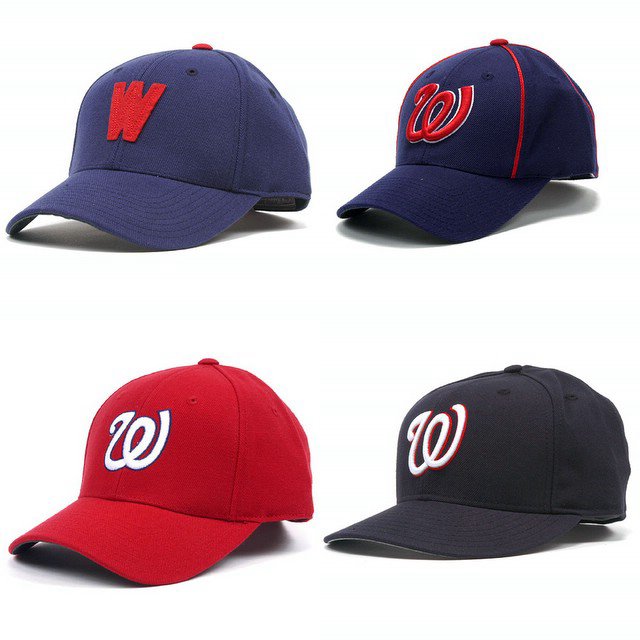 3) 1968 - '71, and 2005 (home) --- 4) 2005 (road)
3) 1968 - '71, and 2005 (home) --- 4) 2005 (road) Buddy Meyer --- Walter Johnson
Buddy Meyer --- Walter Johnson Ed Yost --- Muddy Ruel
Ed Yost --- Muddy Ruel Roger Peckinpaugh --- Joe Cronin
Roger Peckinpaugh --- Joe Cronin Del Unser --- Darold Knowles
Del Unser --- Darold Knowles Ed Stroud - Mike Epstein
Ed Stroud - Mike Epstein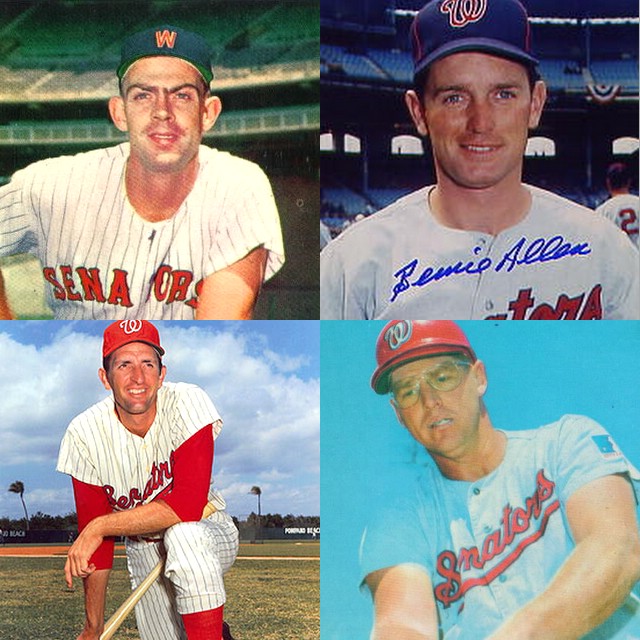 3)1968 -- 4)1969 - 1971
3)1968 -- 4)1969 - 1971